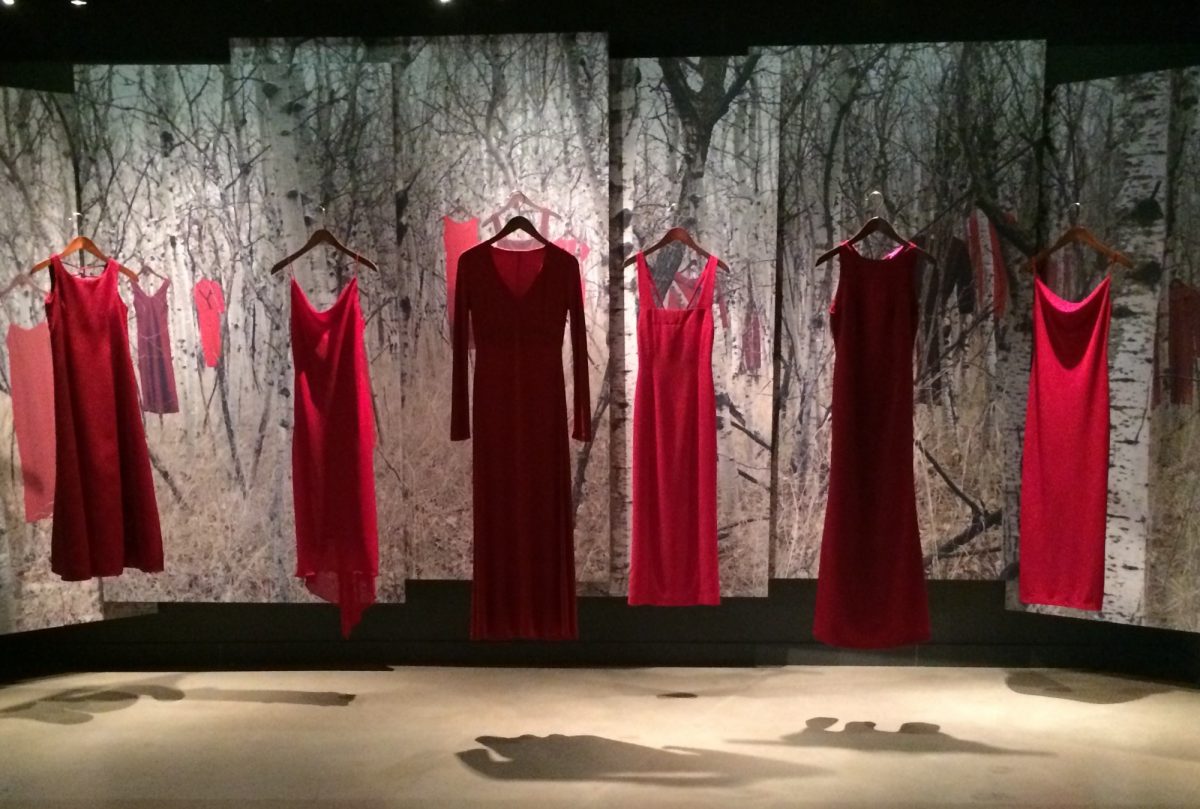
The Redress Project at the Canadian Museum for Human Rights // Photo by Ruth Shead
Remembering missing and murdered Indigenous women, girls and Two-Spirit people
In her studies of the ongoing racist misrepresentations of Indigenous women in Canadian society, University of Manitoba master’s of Native studies student Sarah Olson believes both the media’s and law enforcement’s failure to report countless cases is one of the biggest contributing factors to the Missing and Murdered Indigenous Women, Girls and Two-Spirit (MMIWG2S) epidemic.
“I grew up knowing that as an Indigenous woman, experiencing violence was going to be a fact of life,” Olson, a member of the Norway House Cree Nation, explains. “I decided to embark on this research because I wanted to understand where the shame I held came from, and why my family and I were more at risk of being victimized.”
Olson’s research focuses on the ways in which Indigenous women are portrayed in Canadian society and media in relation to the crimes committed against them. “The dehumanization of Indigenous Peoples is at the root of MMIWG2S, which means our resurgence is essential to healing and revitalizing our cultures and communities.”
Following 2017’s release of Reclaiming Power and Place: The Final Report of the National Inquiry into Missing and Murdered Indigenous Women and Girls, Knowledge Keeper Leslie Spillett helped form a reading group in the College of Nursing to discuss the executive summary, with the goal of gaining a stronger understanding of the responsibilities the College had in responding and implementing.
“We can only honour the lives of those who have been taken violently by taking concrete and meaningful action that ensures the full equality of Indigenous women, girls and gender-diverse individuals in our community,” Spillett says.
The reading group was voluntary and invited guest speakers, including the national inquiry’s executive director at the time, Jennifer Moore Rattray, to share experiences and perspectives to encourage post-secondary institutions to advance the Calls to Justice.
Spillett advises that some of the many ways individuals can advocate for MMIWG2S is to become familiar with the 231 Calls to Justice, as well as organizing and hosting university-level conversations that examine gender-based violence and intersectional systems of oppression.
“Engage in community actions like commemoration dates and community vigils while implementing fundamental principles, such as ‘nothing about us without us’ and Indigenous sovereignty as guiding principles to building respectful relationships with Indigenous Peoples,” Spillett adds.
To partake in advocacy work, Vice-President (Indigenous) Catherine Cook invites members of the UM community to wear red on May 5 – the colour red has been chosen to acknowledge MMIWG2S. “We are responsible to bring visibility and awareness to the violence that is being committed against our Indigenous Women and Girls and our communities, and to encourage others to join the fight for systemic change.”






